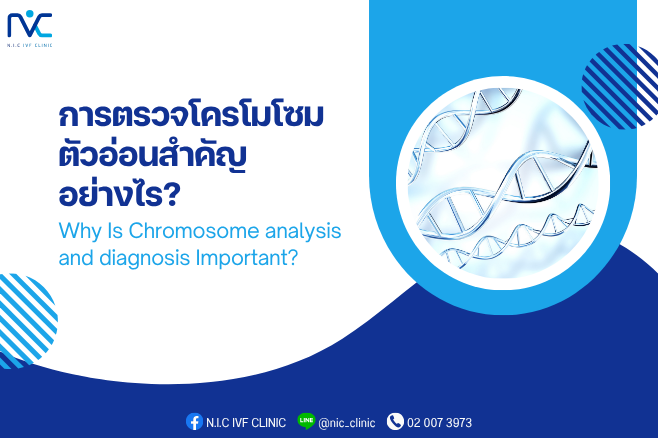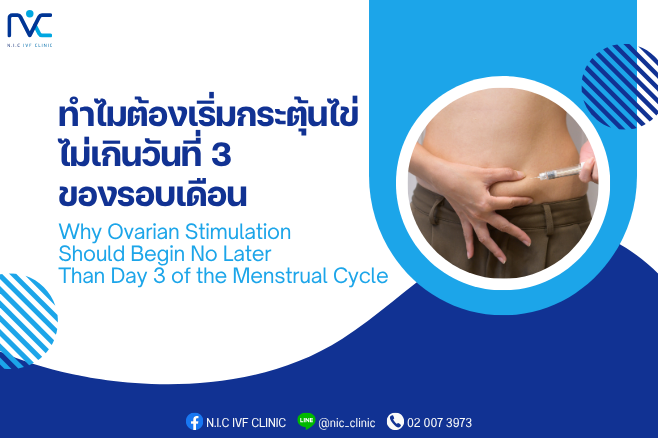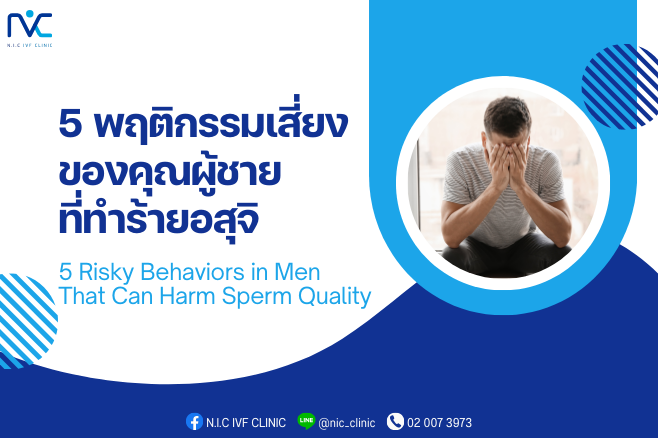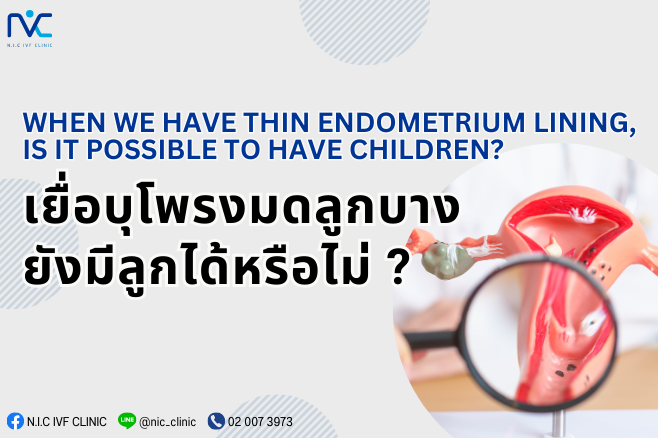NEWS & KNOWLEDGE
Why Is Chromosome analysis and diagnosis Important?

Why Is Chromosome analysis and diagnosis Important?
Preimplantation Genetic Testing for Aneuploidy (PGT-A) is a highly accurate screening method (95–97% accuracy) used to detect chromosomal abnormalities both autosomal and sex chromosomes in embryos before transferred back into the uterus. After fertilization using the ICSI (Intracytoplasmic Sperm Injection) technique, the embryos are cultured to the blastocyst stage. At this stage, embryologists perform a biopsy of a few cells that will develop into the placenta for chromosomal analysis. The embryos are cryopreserved while awaiting test results. Once results are available, healthy embryos can be thawed and transferred back into the uterus to achieve a successful pregnancy and improve the chances of delivering a healthy baby. PGT-A helps reduce the risk of miscarriage, reduce the time it takes to try to conceive, and increases the chances of successful implantation.

Steps of PGT-A Screening test
- Following ovarian stimulation, egg retrieval, and fertilization with ICSI process, embryos are cultured for 5–6 days until the blastocyst stage.
- Embryologists perform a biopsy of a few cells from the trophectoderm (which will develop into the placenta) for chromosomal testing. The biopsied blastocysts are cryopreserved while awaiting results. If the test results are available, the embryo is thawed and transferred back into the uterus (FET).
- Testing is performed using Next Generation Sequencing (NGS), which screens all 22 pairs of autosomes and the sex chromosomes. NGS detects whole chromosome aneuploidies and structural abnormalities such as duplications or deletions. The testing and reporting process typically takes around 7–10 days.

Benefits of PGT-A Screening test
- Detects chromosomal abnormalities before embryo transfer.
- Increases the success rate of implantation and pregnancy.
- Reduces the risk of transferring embryos with abnormal chromosomes.
- Reduces the risk of miscarriage.
- Increases the chances of embryo implantation.
Who should have PGT-A screening test?
- Couples with a history of pregnancies affected by chromosomal abnormalities.
- Mothers with a history of more than two miscarriages before 12 weeks of pregnancy.
- Women over 35 years old, with medical indication that the embryo is at risk of genetic abnormality.
- History of two or more consecutive failures to conceive following treatment with assisted reproduction technology.

By:
Assoc.Prof. Matchuporn Sukprasert
Piyarat Sopaboon, Clinical Embryologist
For more information, please contact us via:
LINE Official : @nic_clinic or https://lin.ee/Mmq6m2K
Tel: 02-007-3973 or 095-370-2483


